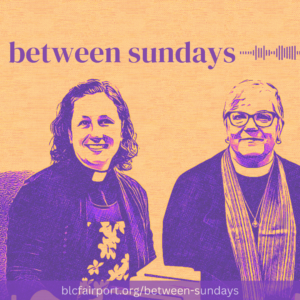Between Sundays for Week of June 17, 2024
What do you suppose Jesus felt the night he prayed in Gethesemane?
Our understanding of that story is shaped as much by a famous painting, as it was by the words in the gospels. In the painting, Jesus is in the garden at night, kneeling at a rock with his hands folded in front of him. In the shadows, three disciples struggle to stay awake on the ground, and in the distance the temple of Jerusalem sits on a hill. Jesus, ignoring everything behind him, looks to a mysterious light coming from the dark sky, his own head circled with light as well. The look on his face has been described as “placid.” The painting tells a story of faithful obedience coupled with a sort of resignation on Jesus’ part. As if Jesus is praying, “I don’t really wanna go to the cross, but I guess if I have to I will.”
In contrast, the words Matthew wrote tells a more gripping story than the one portrayed in that famous painting. In Matthew’s story, Jesus is “grieved and agitated” (v. 37). Jesus throws himself on the ground in prayer (v. 39) and is repeatedly dismayed that his closest disciples can’t remain alert in the midst of this moment of testing. Matthew makes a point of repeating the scene three times. Even though his disciples are there in body, Jesus is utterly alone in spirit in this moment. Again . . . and again . . . and again, Jesus prays that God would find some other way forward: “yet not what I want but what you want” (v. 39) and again “your will be done” (v. 42). Matthew does not portray Jesus as a hero of the faith simply accepting what God has placed before him. Matthew shows Jesus bravely and courageously wrestling to accept God’s will, but it is a bravery (probably like a lot of acts of bravery) filled with agitation, fear, reluctance, and vulnerability.
Loving God and neighbor, living as salt and light in this world that God loves means that we are continually being called to set out on new paths. And new paths calls us to be brave. Whether that new path is attending your first youth gathering, or preparing to head to your first year of college, or readying yourself for your first day in decades where you have no children in your home to care for, or starting a new career, or retiring from a career you have given your working life to, or selling a family home, or going back to school, or facing an addiction, or asking for more from a relationship, or opening your heart and mind to hear the story of a person whose life-experience challenges your understanding, whatever new paths you find yourself on in this life . . . you are brave! And, just like Jesus, what brave feels like inside of you will likely seem a lot more like open and exposed vulnerability.
We are called to follow the way of Jesus and do hard, brave things. Sunday’s prayer of the day gives us words to carry in these moments: Lord, thank you for calling us to follow Jesus by being vulnerable for the sake of the world. Help us to see how, in risking ourselves, we participate in the evolution of your kingdom. Show us where we are called to be vulnerable and help us to be brave enough to follow you. We pray this in the name of the one who became vulnerable to the point of death for the sake of the world, Jesus Christ, our Lord. Amen
P.S. View the worship livestream on BLC’s YouTube Channel, or watch past services on the Share in Worship page of BLC’s website!
Subscribe to “Between Sundays” on your favorite podcast app and help us spread the word through sharing!
Ponderings
The songwriter Carrie Newcomer sings You Can Do This Hard Thing (click the link to watch the video). Newcomer writes: “Barbara Kingsolver has written about a phrase she uses to encourage her children, ‘You can do hard things.’ I loved this idea behind this phrase. It absolutely acknowledges the difficulty of the task at hand, and yet, at the same time it completely affirms that the child has everything they need to move forward, and that they have support. I began to think about all the times in my own life that someone has given me that kind of sound advice and encouragement.”
The song ends:
From the muddy ground comes a green volunteer
In a place we thought barren, new life appears
Morning will come whistling some comforting tune for you: You can do this hard thing, you can do this hard thing
It’s not easy I know, but I believe that it’s so
You can do this hard thing.




